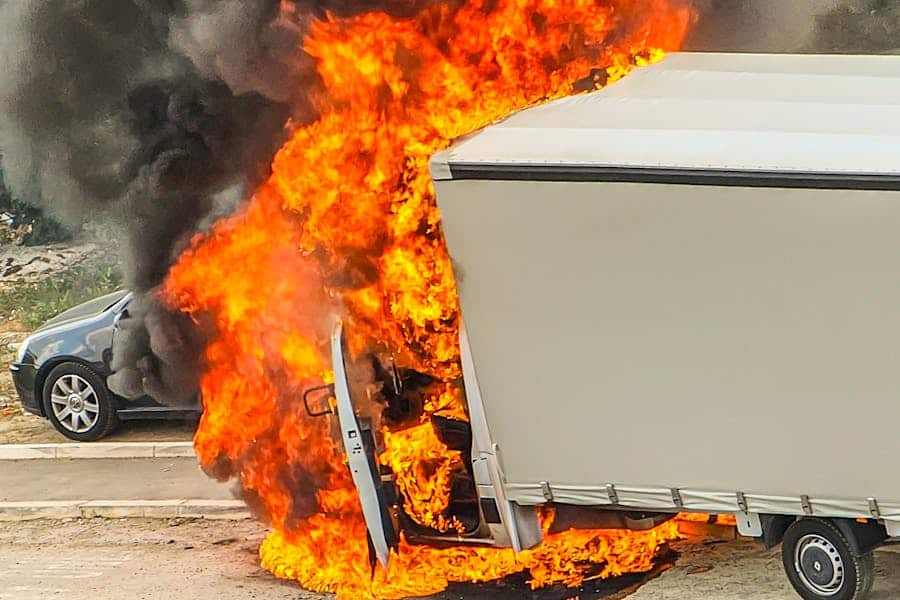
Truck accidents stand apart from typical car crashes in their severity and legal intricacies. When a massive 80,000-pound commercial truck collides with a passenger vehicle, the consequences are often catastrophic. The aftermath involves not just physical recovery, but a complex legal process that requires expert navigation. This article explores the nature of truck accident cases, shedding light on the challenges victims face and the critical factors that shape these legal battles.
Multiple Liable Parties
One of the most significant differences between truck and car accidents is the number of potentially liable parties. This makes the role of truck accident attorneys especially crucial. In a typical car accident, the fault usually lies with one or both drivers. However, truck accidents can involve a web of responsibility that includes:
● The truck driver
● The trucking company
● The vehicle manufacturer
● Cargo loaders
● Maintenance providers.
Each of these entities may bear some responsibility for the accident, complicating the process of determining fault and securing compensation.
Federal Regulations and Compliance
The trucking industry operates under strict federal regulations set by the Federal Motor Carrier Safety Administration (FMCSA). These rules govern everything from driver hours of service to vehicle maintenance standards. When a truck accident occurs, investigators must determine whether any of these regulations were violated.
Compliance with these regulations often becomes a central issue in legal proceedings. Trucking companies must maintain detailed records of their operations, including driver logs, maintenance reports, and drug testing results. Attorneys for the injured party will scrutinize these records for any signs of non-compliance that could have contributed to the accident.
Evidence Gathering and Preservation
The complexity of truck accident cases demands swift and thorough evidence collection. Critical evidence can include:
● Black box data from the truck
● Driver logs and communication records
● Surveillance footage from nearby businesses
● Witness statements
● Skid mark analysis
● Truck maintenance records
Preserving this evidence is crucial, as trucking companies may attempt to alter or destroy incriminating information. Experienced attorneys often send “spoliation letters” to trucking companies, legally requiring them to preserve all relevant evidence.
Insurance Challenges
Trucking companies typically carry substantial insurance policies, often in the millions of dollars. While this might seem beneficial for accident victims, it can complicate matters.
Insurance companies have teams of skilled adjusters and attorneys whose job is to minimize payouts. They may employ tactics such as quick settlement offers that undervalue the true cost of injuries and long-term care.
Victims and their legal representatives must be prepared for aggressive defense strategies and have the resources to counter them effectively.
Proving Damages
Truck accidents frequently result in severe injuries that have long-lasting impacts on victims’ lives. Proving the full extent of damages requires extensive documentation and expert testimony. This may include:
● Medical records and future treatment plans
● Economic loss calculations for lost wages and earning capacity
● Life care plans for ongoing medical needs
● Expert testimony on the psychological impact of injuries.
Attorneys must paint a comprehensive picture of how the accident has affected and will continue to affect the victim’s life to secure fair compensation.
Statute of Limitations
The time frame for filing a truck accident lawsuit varies by state and can be affected by the involvement of government entities. Missing these deadlines can bar victims from seeking compensation altogether. The complexity of these cases means that preparation should begin as soon as possible after the accident.
Comparative Negligence
Many states operate under comparative negligence laws, which can reduce a victim’s compensation based on the percentage of their fault in the accident. Defense attorneys often try to shift blame onto the victim to minimize their client’s liability. Skilled plaintiff’s attorneys must be prepared to counter these arguments and protect their client’s right to full compensation.
Settlement vs. Trial
The majority of truck accident cases settle out of court, but the path to a fair settlement can be long and arduous. Attorneys must be prepared to take a case to trial if necessary, which requires a different set of skills and resources. The decision to settle or go to trial depends on various factors, including the strength of evidence, the extent of damages, and the risk tolerance of all parties involved.
To Sum Up
In conclusion, truck accident cases present a unique set of legal challenges that demand specialized knowledge and resources. Consider the following table outlining key differences between truck and car accident litigation:
| Aspect | Truck Accidents | Car Accidents |
| Potential Liable Parties | Multiple (driver, company, manufacturer, etc.) | Typically limited to drivers involved |
| Applicable Regulations | Federal and state regulations | Primarily state traffic laws |
| Insurance Coverage | Often multi-million dollar policies | Usually lower coverage limits |
| Evidence Complexity | High (black box data, company records, etc.) | Generally simpler (police reports, photos) |
| Typical Injury Severity | Often catastrophic or fatal | Varies widely |
| Legal Expertise Required | Specialized knowledge of the trucking industry | General personal injury knowledge |
| Case Duration | Typically longer due to complexity | Often resolved more quickly |
| Settlement Amounts | Potentially much higher | Generally lower |
Victims of truck accidents should seek legal representation from attorneys with specific experience in this complex field to ensure their rights are protected and they receive fair compensation for their injuries and losses.





